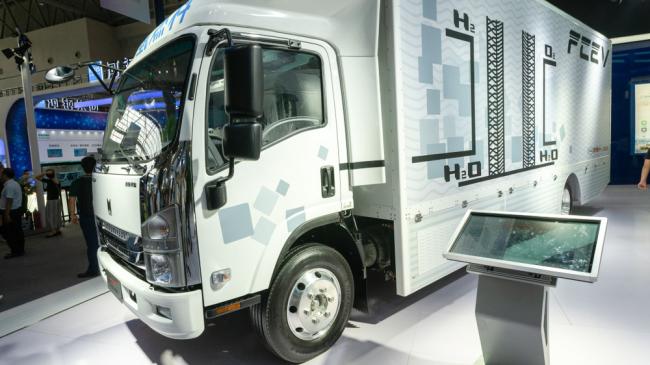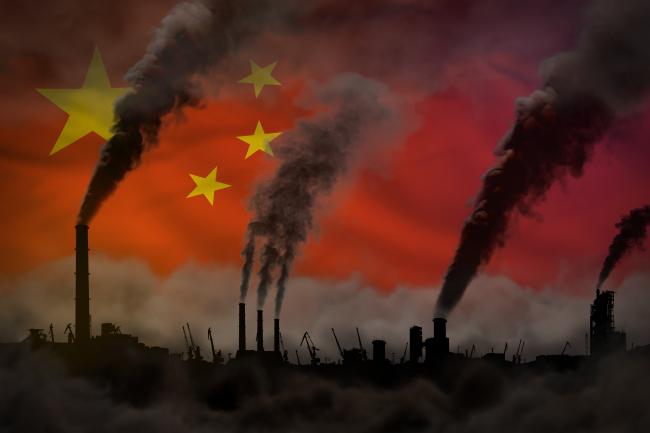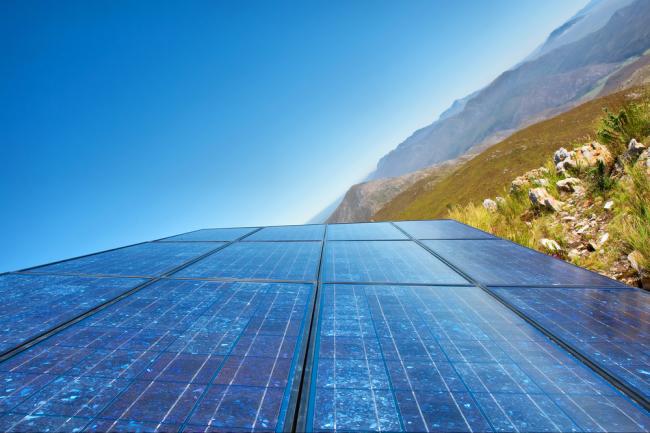Energy - Climate
In the face of the climate emergency and geopolitical confrontations, how can we reconcile security of supply, competitiveness, accessibility, decarbonization and acceptability? What policies are needed?
Related Subjects

Prospects of a Hydrogen Economy with Chinese Characteristics
This study assesses the prospects of a hydrogen economy with Chinese characteristics. Against the backdrop of an escalating US-China trade war and the ongoing novel coronavirus (COVID-19) pandemic, key Chinese stakeholders become increasingly interested in moving the hydrogen economy agenda forward.
The Renovation Wave: A Make or Break for the European Green Deal
European buildings are old and too often inefficient, past policies have not delivered and the amount of investment into energy efficiency must be scaled up dramatically to meet the 2030 targets and ultimately, the carbon neutrality objective.
Turkey’s New Gas Discovery in the Black Sea and Its Potential Implications
Turkish President Recep Tayyip Erdogan announced Turkey’s biggest gas discovery ever on August 21, 2020. Initial findings show that the estimated reserve capacity is 320 billion cubic meters (bcm) of gas.
Ambitious New Climate Goals Shouldn't Let China off the Hook
Xi Jinping’s announcement of carbon neutrality is impeccably timed, but the hard part lies ahead.
Japan’s Hydrogen Society Ambition: 2020 Status and Perspectives
Japan has been steadfastly promoting the development of its hydrogen economy at all levels: political, diplomatic, economic and industrial. It is yet to be seen if this excitement can be turned into a credible, cost-effective and large scale deployment.
Norway as a Decarbonization Hub for the European Union
The European Union (EU) is committed to reach climate neutrality by 2050. Similarly, Norway aims to create a zero-emission society by that same year.
Shaping the future of the EU: reviving the Europeanisation process
More than ten years after joining the European Union (EU), the Central and Eastern European countries (CEECs) exhibit a puzzle of attitudes and conceptions regarding the EU.
QF scales up mission to expand Qatar’s solar energy vision
Governments across the globe are increasingly focusing on the benefits of sustainable energy and Qatar is no different. As part of its national vision, the country is working to create harmony between environmental protection and economic growth.
Solar Power in Sub-Saharan Africa after COVID-19: Healing the Ills of the Sector
The electrification of sub-Saharan Africa is one of the great challenges of the 21st century. It is essential if we are to succeed in creating the 20 million jobs each year necessary to absorb the demographic growth of the region,[1] which is set to have 2.1 billion inhabitants in 2050, compared to 1.1 billion today.[2]
Russia, the Global Sanitary Crisis and Oil Meltdown: Revisiting Power and the Enemy
In global affairs, the Covid-19 virus makes all countries, powers and individuals equal in one dimension: none is immune to or spared from contamination. In an open and interdependent world, we are all exposed to global sanitary and environmental degradations. Russia is no exception: it has gone into lockdown, with increasing economic and social costs adding up to the fall in oil and gas prices and upcoming impacts of the global recession.
An Overview of Italy's Energy Mix
Italy is currently hit by an unprecedented economic, political and social crisis. This changing and uncertain environment affects more than ever the ability to define an energy strategy, which has never really benefitted from a clear vision and a solid organization. Since the 1987 referendum, which acknowledged the end of the nuclear program, the Italian energy policy has been elaborated through a juxtaposition of decrees and rules. Several laws have been approved either to comply with the European regulation or to correct former policies. These have contributed to the creation of a highly intricate regulation puzzle, only accessible to the most voluntary ones or the better equipped. The “success” of renewables subsidies has compromised the profitability of thermal power stations and increased the energy bills of retail consumers.
China and Cleaner Coal: A marriage of necessity destined for failure?
For China, coal is a crucial source of abundant, indigenous and affordable energy and is a pillar of economic and social stability. From a logic of energy security, and because the industry itself maintains a formidable political presence through the sheer fact of its history and size, this resource will continue to play a central role in the country’s energy mix. But in order to respond to the growing need to reduce the burden of coal use on the environment and the Chinese population, and to prevent catastrophic climate change, both Chinese leaders and the industry itself have faced a certain reality - coal must become cleaner.
Gas Routes to Europe: Real Needs and Political Jockeying
The Energy Roadmap 2050 released by the Commission in December 2011 says it all: we will need more gas until 2030. Gas represents the default solution for a transition to an energy system with less GHG emissions. It also has great value as a back-up for intermittent renewable power generation. Therefore, stating that Europe still needs large quantities of gas means checking if supply volumes are available to satisfy growing demand.
February Gas Pains in Europe - Coping Is Not Managing: the Italian Response to the Gas Crisis
The recent cold spell that gripped much of Europe was a test for the European gas network. In many countries temperatures fell dramatically to -10°C during the first week of February, even dropping a bone chilling - 22°C in some places.
As the European Commission(s Director General for Energy Philippe Lowe said during a speech at our Annual Conference last Thursday (February 16) in Brussels, Europe(s gas network was able to respond to the sharp increase in demand despite a simultaneous drop in supply from Gazprom.
Libya: Old or New Picture? Risks of political uncertainty for the gas and oil business
Libya has an opportunity to get back on track. The end of embargoes and sanctions after the conclusion of the “February Revolution” is favoring a fast production growth.
The U.S. Oil and Gas Boom
A funny thing happened in the last few years when no one was paying attention. J.R. Ewing, the legendary Texas oilman, and his wife Sue Ellen sold Southfork, their ranch near Dallas, and moved to a new home in Pennsylvania (Northfork?). JR immediately began buying subsurface mineral rights for acres of land above the Marcellus and Utica shale formations in the Appalachian Basin.
Gas Exports in Turkmenistan
The Caspian region has been at the center of attention since Europe began seeking alternative routes to natural-gas resources. Turkmenistan has the potential to become an important gas exporter to Europe.
Russian Gas: Reminder of Yesterday Presaging Tomorrow?
One can’t help but be struck by the irony earlier this week of Russian President (ad-interim) Medvedev celebrating the landing of gas in Lubmin Germany from the Nordstream gas pipeline from Russia while Former President and President-in-waiting Putin welcomes Chinese Premier Wen Jiabao to seek a deal to send Russian gas east to Chinese markets.
Gazprom and the EU: Raiding the Gas Companies
It was a matter of time before the Commission competition authorities looked into the business arrangements between Gazprom and its European partners. Some would ask why it took so long.
Commission Communication of the EU Energy External Policy: Was There an Alternative?
EU is the world’s largest net energy importer and consumer, so why do its Members continue to negotiate individually with the rest of the world rather than as one big market with a big voice?
Support independent French research
Ifri, a foundation recognized as being of public utility, relies largely on private donors – companies and individuals – to guarantee its sustainability and intellectual independence. Through their funding, donors help maintain the Institute's position among the world's leading think tanks. By benefiting from an internationally recognized network and expertise, donors refine their understanding of geopolitical risk and its consequences on global politics and the economy. In 2024, Ifri will support more than 70 French and foreign companies and organizations.

















